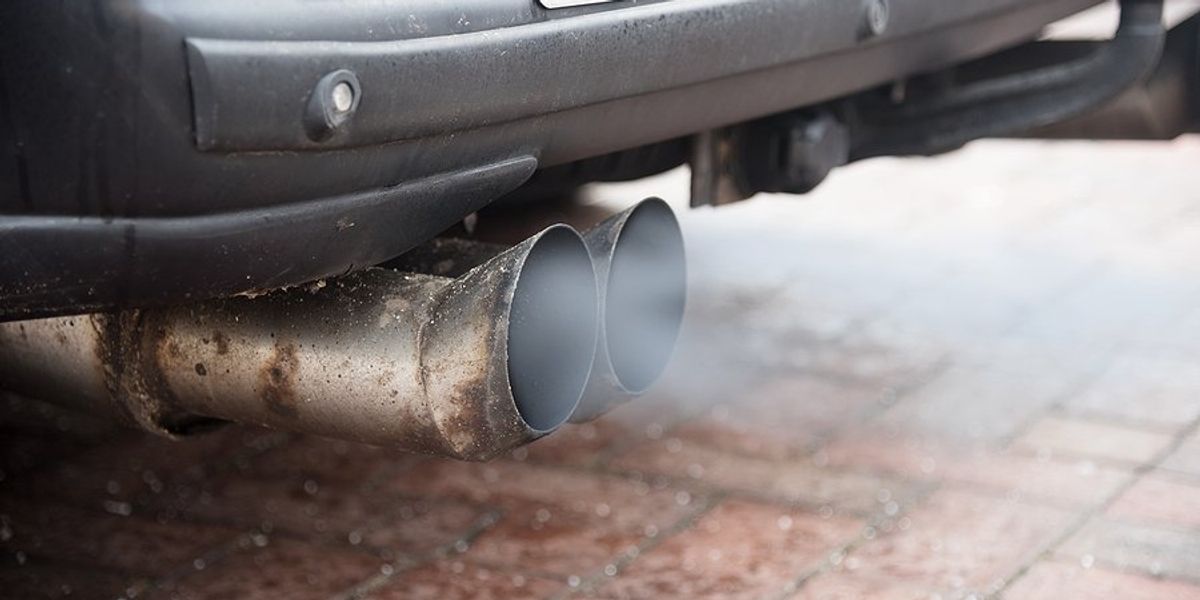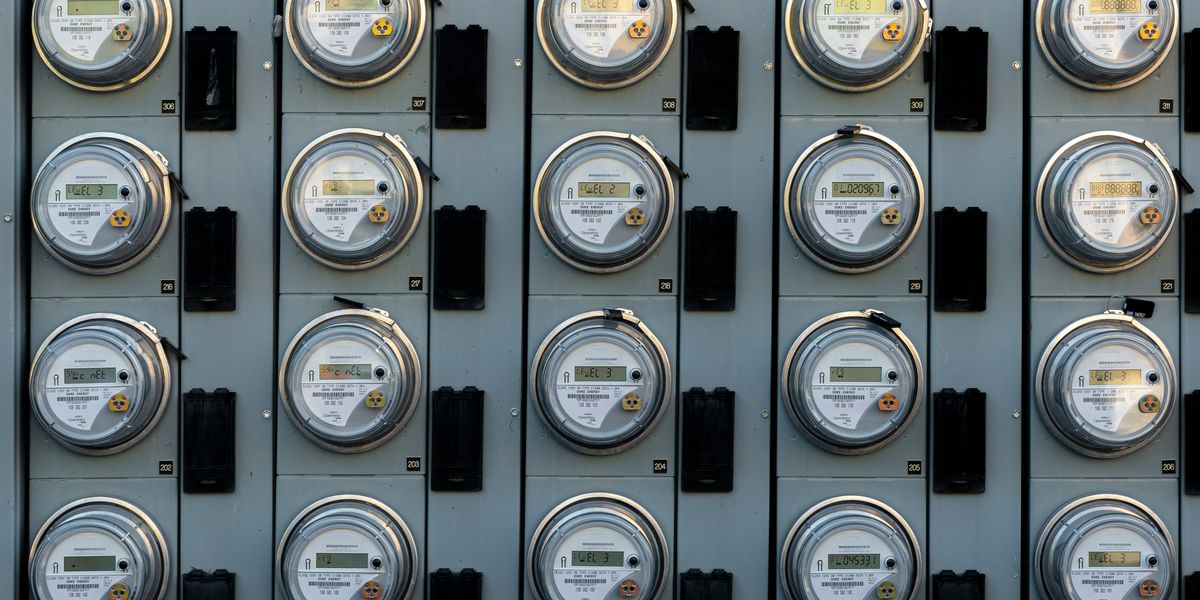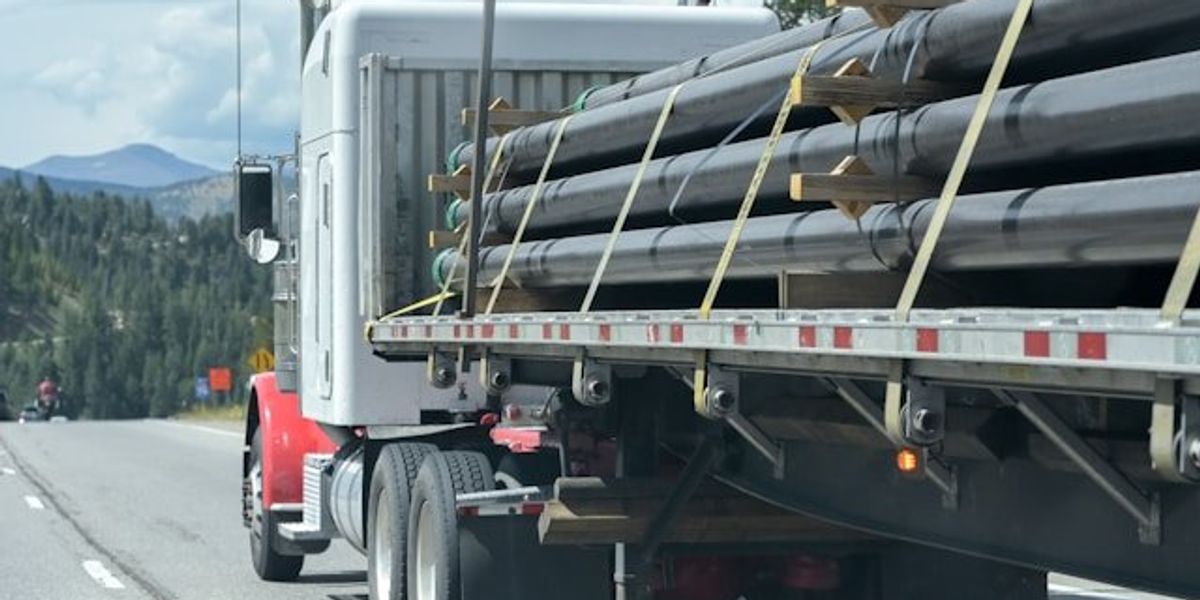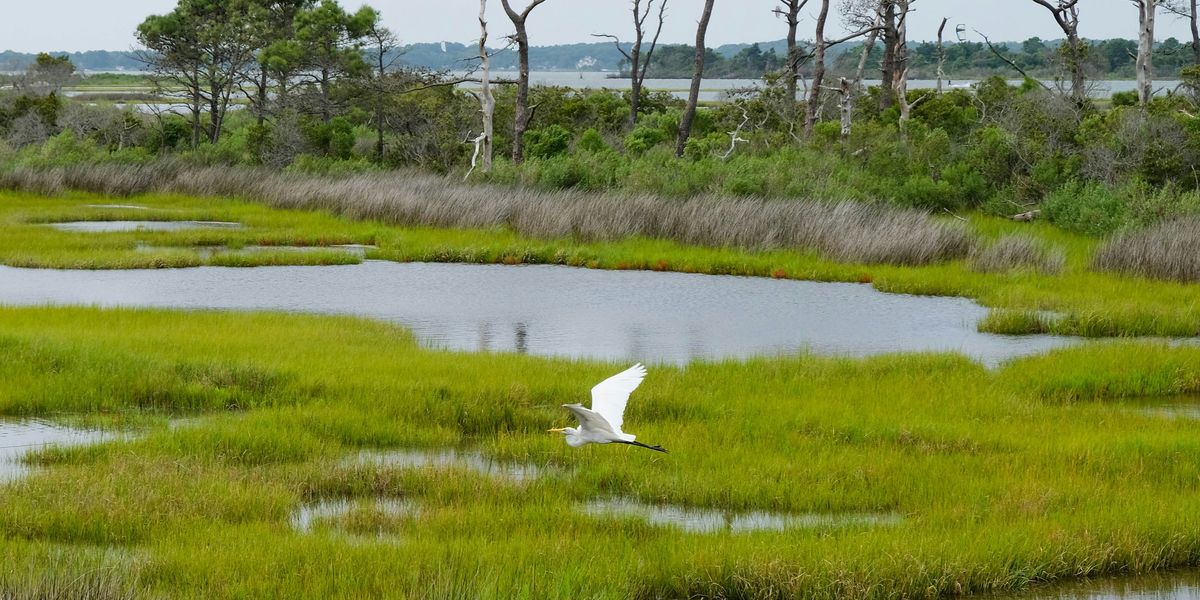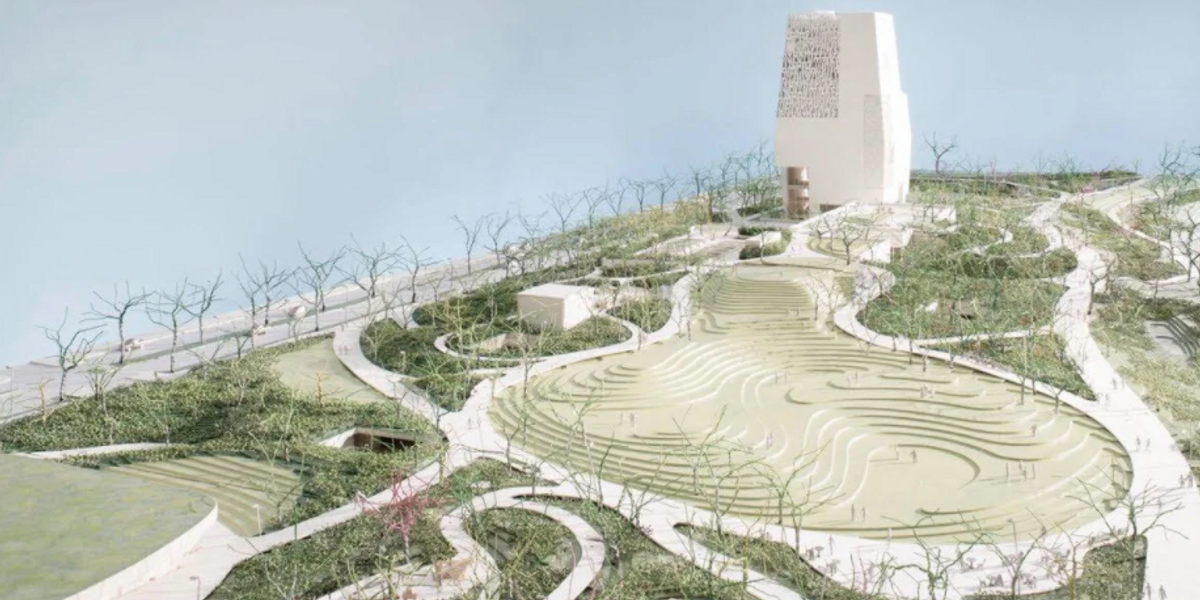
Obama Presidential Center will displace vital South Side Chicago trees, advocates say
The Center will remove hundreds of trees that provide cooling in the summer, cleaner air, and a quiet respite for residents—but promises to re-plant the area and provide an economic boost.
On August 16, the Obama Foundation started work on the Obama Presidential Center, but without the fanfare that one might expect. Over the past five years, the Center's South Side Chicago location has prompted multiple lawsuits and a recent Supreme Court petition.
It's not that Chicagoans don't want the Center—many seem excited for the economic opportunities it will bring. Rather, opponents, like the non-profit organization Protect our Parks, do not want the Center built in Jackson Park, where they say it will cause "irreparable" environmental harm.
Positioned between the University of Chicago and Lake Michigan, Jackson Park is a 550-acre green space in the southeastern edge of the city, used for everything from family get-togethers to sporting events.
The park's lush tree canopy is a refuge from the sweltering summer heat, which has been growing increasingly worse due to climate change. Trees can reduce local temperatures by as much as 10 degrees Fahrenheit. "We go [to Jackson Park] to be cooler, to be comfortable as we hang out," Jeannette Hoyt, director of CCAM Research Partners and former resident of the area, told EHN, adding that many of the nearby residents can't afford air conditioning. Hoyt is not affiliated with Protect our Parks.
However, if the Center's construction continues as planned, some of those trees will come down. According to a 2020 Environmental Assessment of the area conducted by the National Park Service, the project will remove 326 trees at the site of the Center, along with an additional 463 trees due to project-related construction, including transportation improvements and relocation of the park's track and field.
Aside from their cooling effect, the environmental benefit of trees in this area also include the removal of roughly 22 tons of carbon dioxide and 342 pounds of air pollution each year, according to a 2018 survey of the area. The latter is especially important in a city that is ranked as the 16th most polluted city in the US for ozone pollution and whose asthma rates surpass national averages.
Trees also benefit our mental health, Kathleen Wolf, a research social scientist at the University of Washington, told EHN.
"Short amounts of time in nature can help us to restore our minds, and not just make us feel better, but actually reduce potential aggression, reduce irritation, reduce anxiety," she said.
“One tree does not equal one tree”
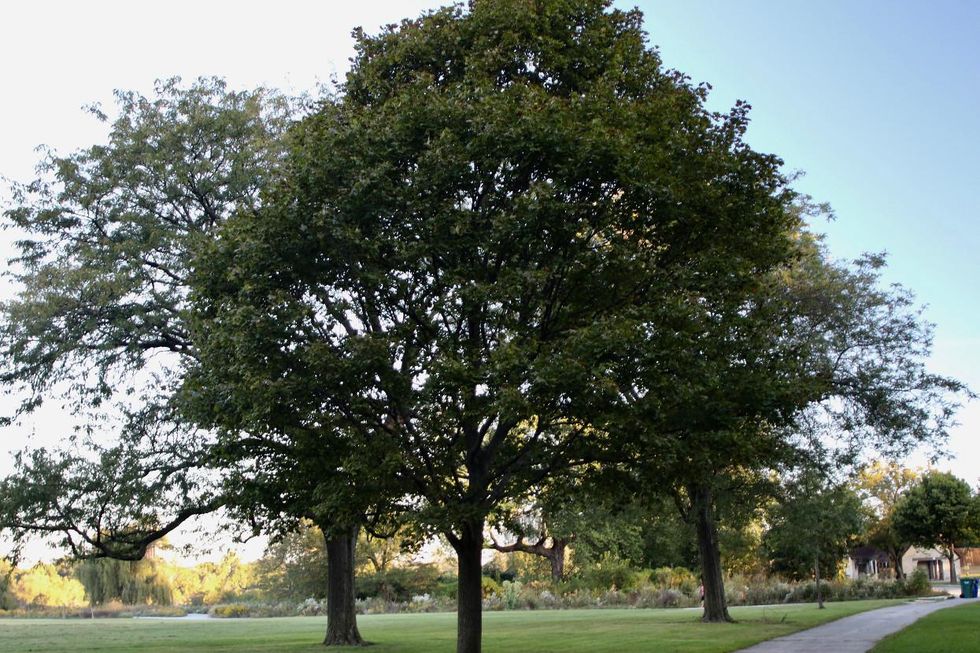
Jackson Park trees. (Credit: Daniel X. O'Neil/flickr)
An Obama Foundation spokesperson told EHN in an email that many of the trees are currently dead or in poor health. However, the 2018 survey of the area, performed by experts hired by the Foundation, states that only 64 trees currently need to be removed from the area due to their condition or suboptimal locations.
The spokesperson said current design calls "for more trees than exist on the site today" and that there are plans to increase the biodiversity of the species. This will include bird- and pollinator-friendly plant selections that will benefit the wildlife that frequents the area.
But "one tree does not equal one tree," David Nowak, an emeritus senior scientist with the U.S. Forest Service, told EHN, explaining that the environmental benefits derived from a large tree are 60 to 70 times greater than smaller trees.
He also added that planting new trees comes with a risk. "There's no guarantee that the young tree is going to survive," he explained. "New trees have a fairly high mortality rate before they get established."
Designing with creativity
Protect Our Park and other community members are pushing for the Center to be relocated to nearby Washington Park. "It's relatively treeless," said Hoyt, who points out that there are also many vacant lots in the area that the Foundation could build on.
"It would bring the same amount of jobs [and] it would bring more tourism" since it's near a major train line, she added. "And we get to save...our safe space" and the environmental benefits it provides.
That said, if the Center stays in Jackson Park, Wolf wonders if there is a way to integrate some of the existing trees into the development. "Design is about creativity," she said, "yet the first move is to remove the trees [and] create this blank slate of a parcel."
Gentrification concerns
The battle is still ongoing, creating a conversation that goes beyond trees. Local communities fear this construction project will gentrify the area, displacing the predominantly Black residents. On the other hand, there's the benefit of tourism and jobs that the Center has promised to provide.
"I certainly couldn't say which is better, said Nowak. "It depends what the [local] people want."
Still, he hopes that as this debate continues the value of these trees isn't discarded. "There's a cost associated—not just removing the trees—but the cost of the loss of benefits that would have been there."


